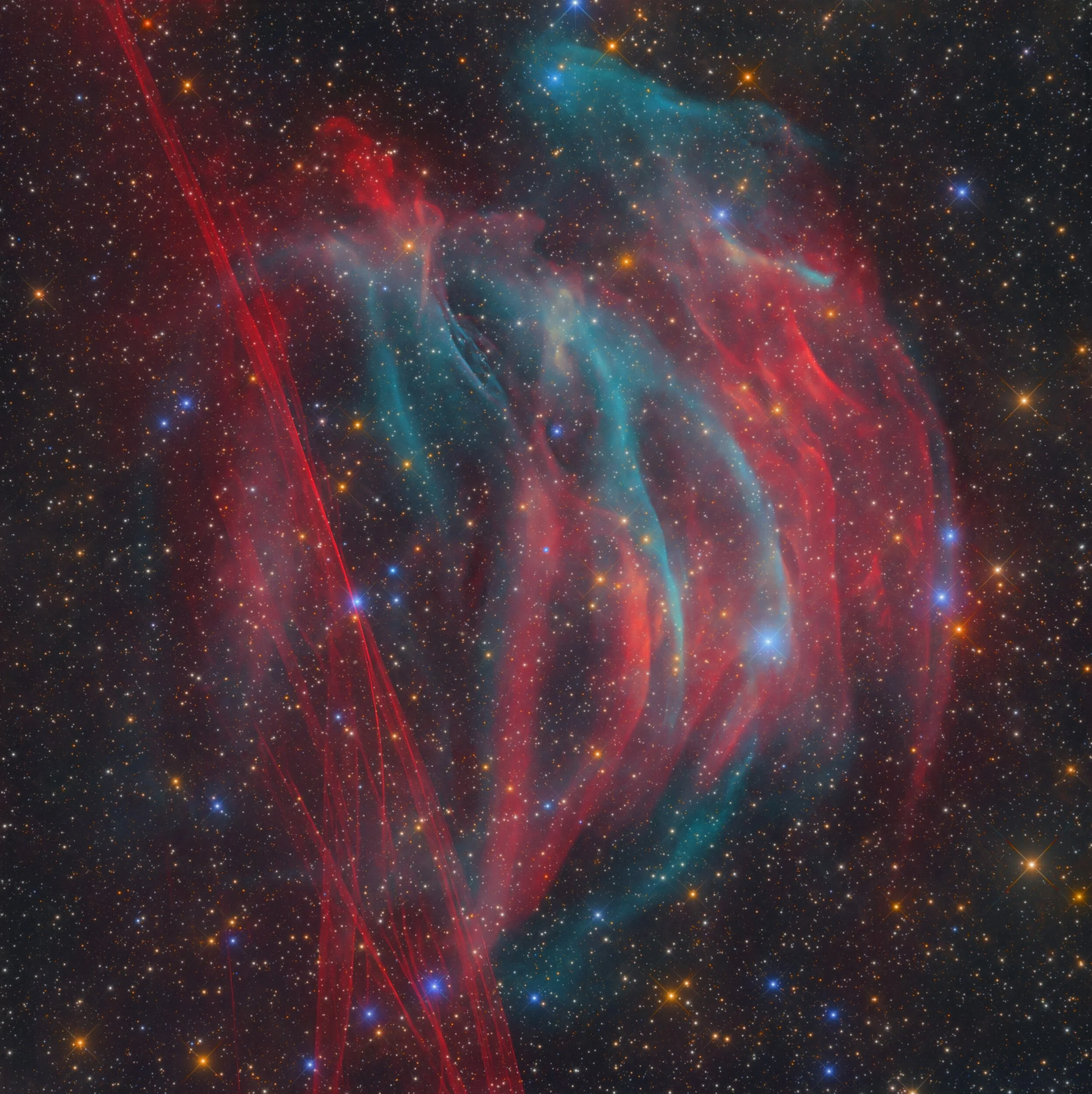NEW DISCOVERY - PaStDr 8 / The Bärenstein Nebula and the Supernova remnant G354-33
Image Description and Details : We are very proud to present Patchick-Strottner-Drechser 8 (PaStDr for short) the latest discovery of our team consisting of Dana Patchick from the US, Xavier Strottner from France and Marcel Drechsler from Germany.
6 MONTHS OF WORK, 68 NIGHTS AT THE CHILESCOPE AND 133 HOURS OF EXPOSURE TIME WERE NECESSARY TO IMAGE THIS EXTREMELY FAINT NEBULA.
Our discovery is a previously unknown potential planetary nebula in the constellation Sagittarius.
The structure has a diameter of almost one degree in the night sky and a distance of about 840 light years to Earth.
The special feature of this photo are the extremely filigree and blood red filaments of the supernova remnant G354-33, which can be seen in the left part of the image. This is the first photo ever taken of this almost unknown supernova remnant. In 2004 G354-33 was mentioned as a possible SNR in a scientific paper. However, with our work we were able to confirm G354-33 as a true SNR.
The scientific paper on this SNR, on which we worked with Professor Robert Fesen of Dartmoor College, can be found here:
https://arxiv.org/pdf/2102.12599.pdf
It is noteworthy that PaStDr 8 does not appear approximately spherical as usual, but appears much brighter and denser in the west (note, in the night sky the west is shown on the right and the east on the left).
We suspect that the structure of this candidate interacts with supernova remnant G354-33 or is distorted by its shock.
Measurement of the distance between the two structures suggests spatial proximity.
Our thanks to Sergey from Chilescope, who strongly supported us with this project.
We would also like to give special thanks to the many donors without whom this costly photograph would never have been possible. Especially the residents of my home community Bärenstein in Germany should be mentioned here, who also supported our project financially. We thank you so much!
Data on the central white dwarf:
- GAIA WD candidate WDJ194511.31-445954.57
- Pwd: 94.2645
- magnitude: 14.42
- Parallax: 3.8190
- Distance: 258 parsecs (+/- 2 parsecs)
- pm (mas/yr): RA -16,368 / -1,400
- Temperature: 8868,67 K
- Ultraviolet: FUV 12.602 / NUV 13.192
Acquisition data
H-alpha : 193 x 1200s (64.3 hours)
OIII : 153 x 1200s (52 hours)
RGB : 16.5 hours (5.5 hours per channel)
total exposure time : 132.8 hours
used telescopes
2 ASA 0.5 Newton (T2 and T3 on Chilescope, parallel operation)
mirror : 500 mm
focal length : 1900 mm
focal ratio : f/3.8
Copyright: Marcel Drechsler
Share & Credit This AAPOD2 Feature
When you share this image on AstroBin, social media, forums, or your own website, please include a credit to AAPOD2 so viewers can discover where this feature came from.
Support AAPOD2 for free! Use Our AGENA ASTRO Affliate Link
AAPOD2 Title: NEW DISCOVERY - PaStDr 8 / The Bärenstein Nebula and the Supernova remnant G354-33
AAPOD2 Page Link: https://www.aapod2.com/blog/PaStDr-8
Submit Your Photo!

